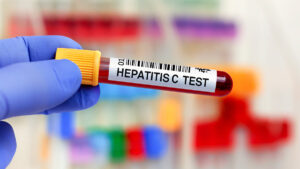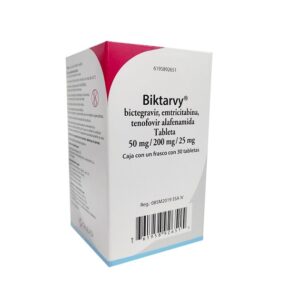Hepatitis C is a liver infection caused by the hepatitis C virus (HCV), and early detection is crucial for effective management. Many people wonder about the reliability of diagnostic tests and how confidently one can interpret the results. Understanding the accuracy of these tests is essential for anyone considering screening, especially for those who may have been exposed to risk factors. In the rapidly growing healthcare landscape, knowing the nuances of the Hepatitis C Test in Dubai can provide peace of mind and empower individuals to take timely action.

Understanding Hepatitis C Testing
Hepatitis C testing involves detecting antibodies or viral genetic material in the blood. The two main types of tests are the antibody test and the RNA (polymerase chain reaction or PCR) test. The antibody test identifies whether a person has been exposed to HCV at some point, while the RNA test confirms the presence of an active infection. Both tests play unique roles in diagnosing hepatitis C, and their combination ensures a higher degree of accuracy.
Factors That Influence Test Accuracy
Several factors can affect the accuracy of hepatitis C tests. Timing is one of the most critical elements. After exposure to the virus, it takes the body several weeks to produce detectable antibodies. This period, known as the “window period,” can lead to false-negative results if testing occurs too early. On the other hand, RNA tests can detect the virus within a few days of infection, offering a reliable early diagnostic option.
Laboratory standards and the quality of testing equipment also influence accuracy. Reputable laboratories follow strict protocols and utilize advanced technology to minimize errors. Sample handling and patient preparation further ensure the reliability of results, making it important to choose certified testing centers.
Sensitivity and Specificity
Accuracy in medical testing is often measured using sensitivity and specificity. Sensitivity refers to the test’s ability to correctly identify those with the infection, while specificity measures how well the test identifies those without it. Hepatitis C tests typically show high sensitivity and specificity, particularly when RNA testing is used. High sensitivity reduces the risk of false negatives, and high specificity decreases the chance of false positives, which is crucial for avoiding unnecessary stress and interventions.
False Positives and False Negatives
Although hepatitis C tests are highly accurate, no test is infallible. False positives—where the test indicates infection in an uninfected individual—can occur due to technical errors or cross-reactivity with other antibodies. False negatives, where the infection is missed, often happen if the test is conducted too early during the window period or if the sample quality is compromised. Understanding these possibilities helps patients interpret results more cautiously and seek follow-up testing when necessary.
Confirmatory Testing
To enhance diagnostic certainty, confirmatory testing is recommended after an initial positive result. The RNA PCR test is the gold standard for confirming an active HCV infection. Confirmatory testing eliminates doubts and guides healthcare decisions, ensuring that treatment plans are based on accurate information. This layered approach maximizes accuracy and reassures patients about their health status.
Testing in High-Risk Populations
Certain groups are at a higher risk for hepatitis C, including individuals with a history of intravenous drug use, recipients of blood transfusions before the early 1990s, and people with multiple sexual partners. Regular testing in these populations is particularly important, as early detection can prevent liver damage and transmission to others. Reliable testing protocols and timely screenings form the backbone of public health strategies against hepatitis C.
Advances in Testing Technology
Modern diagnostic technology has significantly improved the accuracy of hepatitis C testing. Innovations like highly sensitive RNA tests and automated laboratory systems have reduced human error and enhanced detection capabilities. These advances ensure that even low levels of the virus are detected, making testing faster, more precise, and less prone to inaccuracies. For residents and visitors, this technological progress increases confidence in the results they receive.

The Role of Routine Screening
Routine hepatitis C screening is recommended for adults at risk or as part of standard health check-ups in some regions. Early detection allows for monitoring, lifestyle adjustments, and timely medical intervention if necessary. Screening not only protects individual health but also plays a vital role in controlling the spread of hepatitis C within the community. Awareness campaigns and accessible testing facilities have made routine checks easier than ever, reinforcing public trust in the testing process.
Interpreting Results Responsibly
Receiving a test result can evoke strong emotions, whether positive or negative. Understanding what the results mean and following up appropriately is essential. A positive antibody test does not always indicate an active infection, while a negative result might not rule out recent exposure. Consulting reliable resources and considering confirmatory testing ensures that individuals make informed decisions about their health. Being proactive about interpretation reduces anxiety and improves overall health outcomes.
Conclusion
The accuracy of hepatitis C tests has improved tremendously over the years, offering reliable insights into one’s liver health. From antibody detection to RNA confirmation, modern testing provides highly sensitive and specific results. Factors such as timing, sample quality, and testing technology influence outcomes, but adherence to proper protocols minimizes errors. Understanding the strengths and limitations of testing empowers individuals to take control of their health. For those considering early detection and monitoring, the Hepatitis C Test Dubai represents a dependable and essential step toward safeguarding liver health and ensuring peace of mind.





